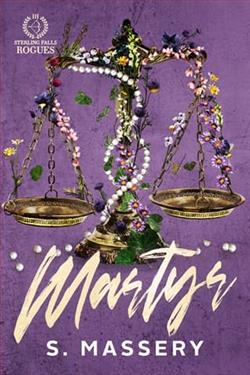Page 25 of Last Letter Home
When he was ready to go, it was the desire to make some public gesture that made Sarah say in the knife-grinder’s hearing, ‘Paul, would you mind if we had tea somewhere. I’m feeling a little headachy,’ as though they were good friends, at ease together. Which they would be, she decided. So what if he was only a gardener? He was far better educated than she was. They had so much to talk about, too. For a moment the face of her late father flashed through her mind. They both grieved, but Paul’s loss was so different that she felt humbled. It was impossible to compare the two.
The cosy teashop they found, with its panelled walls, had probably once been the parlour of a house. They established themselves at a table in the bay window, where between the gingham curtains they watched a man chase his hat down the street. A shy young waitress came to write down their order.
‘I’m sorry about the man in Askey’s,’ Sarah said, when the girl had gone. ‘He was awfully rude.’
‘Ach,’ Paul said with a shrug. ‘It was worse at home. Here they cannot get you thrown in prison if they do not like you.’
‘I feel ashamed.’
His eyes found hers and he smiled. ‘You have nothing to be ashamed of. Your family has shown me and my mother nothing but kindness.’
In truth, Sarah thought as the maid carefully laid out the tea things, her mother and sister had been too absorbed in their own lives to notice the gardener much. During the sunny February, Paul had visited Flint Cottage several times to clear the worst of the brambles and trim the shrubs at the front, but it had been Sarah who had paid him. He had protested, but she insisted. ‘Your mother is not at all well,’ she reminded him. He had let slip that she was prone to bronchitis and her nerves were in shreds. ‘You must need to pay the doctor.’
In a moment of enthusiasm she made a sponge cake once and walked with it up to the Hartmanns’ cottage herself. Such a pretty place, she thought as she waited, but nobody answered her knock so she left the tin on the doorstep with a note. A few days later the empty tin was returned with a letter of thanks penned in shaky italics and the promise of an invitation for the Baileys to call ‘in the spring when I’m sure I’ll feel much better’.
‘How is your mother?’ she asked now.
‘Better than she was, thank you,’ Paul replied. ‘She has always had a delicate constitution.’ Although there was no one else in the room, he lowered his voice. ‘She nearly died having me, you know, and my parents were told by the hospital to have no more children, which is why I have no brothers or sisters. Herr Klein, the consultant who treated her, was Jewish, and he left Germany with his family for America two years ago. My parents’ friendship with him was used as another black mark in the case against my father.’
The tea was ready to pour now, strong, hot and restorative. Sarah closed her eyes briefly as the warmth flowed through her. Teacakes arrived, scented with cinnamon and dripping with butter. How homely it all was. She could almost push away thoughts of the events that Paul described.
It was in the car home in the gathering dusk that he spoke more about his father. He did not look at her, but spoke as though to himself, remembering, his voice stumbling with grief and anger over the worst parts of his narrative.
Klaus Hartmann had been a lecturer in biology at the university for twenty years. His name had more than once been mentioned for preferment, but then he’d added his name to a letter protesting against the exclusion of Jewish students and found his path to promotion was blocked. His response was a heartfelt resistance to the regime’s interference in higher education. He declined invitations to join conferences organized by the government; he continued to teach any student who wished to learn, no matter what their background. Paul and his mother did not know exactly which activity it was that had triggered the Gestapo’s visit to their modest house in the Rotherbaum quarter early one morning in November 1937 and Klaus’ subsequent arrest and incarceration. There was to be a trial, the charge: treason, but it kept being postponed, due to ‘the illness’ of the defendant. Frau Hartmann and Paul were admitted to the prison hospital to see him, and were shocked to see the bruised, emaciated figure lying barely conscious in the bed. Only his eyes spoke to them and they were full of pain and fear. Klaus clutched his wife’s hand as though he’d never let her go and she broke out sobbing. ‘What have they done to you?’ It was only a few days later that his lawyer came to the house with the news they’d dreaded. Klaus Hartmann was dead, the official reason given that he’d been shot during an attempt to escape.
‘We know that’s not true,’ the lawyer said heavily. ‘You saw him. How would a man in his condition be able to escape? He was beaten, you saw that for yourselves. Frau Hartmann, I beg you, take Paul and leave Germany. There’s no future for either of you here and it will become dangerous to be English if there’s war. It is best if you go home.’
‘Home! My mother’s parents were dead and she had lived in Germany since she was eighteen, when she’d been sent to live with a German couple to learn the language. Lady Kelling’s mother was my mother’s cousin,’ Paul went on, ‘and in the end she wrote to them. The Kellings have been kind to have us.’
‘I’m glad.’ In fact, Sarah thought he had spoken stiffly when he mentioned the Kellings and wondered if they had not treated this little German branch of the family in distress with as much kindness as they might. However, she’d still not met Sir Henry and Lady Kelling, so maybe it was too early to form such an opinion.
Instead she said, ‘Do you intend to continue being a gardener?’
He slowed the car to let some schoolchildren cross. When they set off again, he answered her. ‘My plan eventually is to finish my doctorate. There’s a botanist with my specialism at Cambridge University I might write to, to see if he’d be my supervisor, but I need to save some money first. We were able to bring nothing out of Germany . . .’
‘I’m so sorry,’ she said, ‘I expect you would worry about leaving your mother, too.’
‘That’s it exactly. You understand.’ He glanced at her and smiled. ‘It’s been dreadful for her losing my father and she grieves deeply for him. Maybe when it’s warmer she will start to feel a little stronger, and if I move to Cambridge perhaps she would come too. At the moment, though, the arrangement here suits her and she won’t think of going anywhere else.’
He sighed, and Sarah saw how much the situation frustrated him. At twenty-six, a year older than he was, she knew a little of how he felt, that life and youth and the possibility of a future were ebbing away. Her parents’ generation had lost so much in war. Would it soon be the children’s turn?
Fourteen
All Saints’ Westbury was as different from the church in Tuana as it was possible to be. Where the latter had been bleached by the glaring Mediterranean sun, this grey stone hulk with its stubby tower stood hunched up against the cold wind on a graveyard mound that grew wild with grasses and flowers.
Inside, out of the wind, it felt much warmer and the sun falling through the windows cast colourful patterns over the flagstones. Briony was wrapped in quietness as she wandered about, breathing in the musty scents of aged wood and leather and stroking the carved ends of the ancient pews. Halfway down a side aisle she came to a console table and opened a slim calf-bound volume that was lying there. The creamy pages whispered of the past as she read the beautifully handwritten names of the dead of two world wars from the parish, frowning as she tried to recognize any. It was a shock to come across her grandfather’s name, Harry Andrews, but then she saw the date of death was 1916. Perhaps this had been a young uncle who’d died of wounds during the Battle of the Somme. No name from the Second World War entries leaped out at her. No Hartmann, no Andrews or Bailey. She’d almost come to the end when she heard a sudden snore and nearly jumped out of her skin.
The sound came from a choir stall where an elderly man with sparse white hair dozed, a newspaper open on his lap. He was so still that, but for the rise and fall of his chest, he might be taken for a painted wooden carving. There was something familiar about him.
He must have sensed her watching, for his eyes fluttered open and when he saw her he straightened and gave her a smile that shook his wrinkles. ‘Bless you, my dear. I must apologize.’ His hand groped for the stick leaning against the seat beside him and she realized: this was the old man she’d seen sitting in the walled garden on the day she arrived.
‘There’s no need. It’s a good place for a nap,’ she said, taking a concerned step towards him as he rose unsteadily. He wore a clerical collar, she saw, though he was surely too ancient to be vicar here.
‘Don’t worry, I’m quite all right. Simply a little stiff. I see you’ve been examining our memorial register.’
‘Yes, I hope you don’t mind. I’m Briony Wood and I’ve recently discovered that my grandfather’s family came from Westbury. My grandfather moved to Surrey after the war, which is where I’m from. I’m trying to find out a little about him.’
‘You’ll only find the names of the war dead there, of course. Who was your grandfather?’















